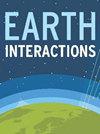农用化学品和遮荫复杂性对咖啡家庭花园土壤质量的影响
IF 1.1
4区 地球科学
Q3 GEOSCIENCES, MULTIDISCIPLINARY
引用次数: 0
摘要
土壤质量可以直接影响特定作物品种的健康、产量和质量,农用化学品经常用于提高土壤的微观和宏观养分。然而,过度使用农用化学品往往会导致酸度和养分浓度失衡,并可能导致土壤恶化。农田中多种遮荫树木的存在对土壤质量有正向影响。在这里,我们评估了农用化学品的使用(即有机、混合和集约化)和遮荫树的复杂性(即阳光、低、高)对土壤质量(即pH值、宏量营养素和微量营养素)的影响。我们发现,在使用农用化学品的农场中,Al、Fe、K和Mn的含量显著高于使用农用化学品的农场,而在使用农用化学品密集的农场,pH值更偏酸性。遮荫复杂性高的土壤C:N比和Mn比高于日晒土壤。然而,农用化学品的使用是不可持续的,因为它增加了铝浓度,降低了pH值,这两者都与咖啡生长不良和土壤质量下降有关。去除遮荫树和使用入侵的非本地物种,如桉树,也会对土壤质量产生负面影响,因此应优先考虑用本地树木维持复杂的遮荫覆盖。本文章由计算机程序翻译,如有差异,请以英文原文为准。
Agrochemicals and Shade Complexity Affect Soil Quality in Coffee Home Gardens
Soil quality can directly influence the health, yield, and quality of a particular crop species, and agrochemicals are often used to boost soil micro- and macro-nutrients. The excessive application of agrochemicals, however, is often the cause of imbalances in acidity and nutrient concentration and can cause soil to deteriorate. The presence of multiple shade trees in farmland can positively influence soil quality. Here, we evaluate the effect of agrochemical use (i.e., organic, mixed, and intensive) and shade tree complexity (i.e., sun, low, and high) on soil quality (i.e., pH, macronutrients, and micronutrients) in 56 coffee home gardens in Indonesia. We found that Al, Fe, K, and Mn were significantly higher in farms that used agrochemicals, and pH was more acidic in fields with intensive use of agrochemicals. C:N ratio and Mn were higher in soils with high shade complexity than in sun-exposed soils. The use of agrochemicals, however, is not sustainable as it increases the Al concentration and decreases pH, both of which are associated with poor coffee growth and reduced soil quality. Shade tree removal and the use of invasive, non-native species, such as eucalyptus, can also negatively influence soil quality, and thus the maintenance of complex shade cover with native trees should be prioritised.
求助全文
通过发布文献求助,成功后即可免费获取论文全文。
去求助
来源期刊

Earth Interactions
地学-地球科学综合
CiteScore
2.70
自引率
5.00%
发文量
16
审稿时长
>12 weeks
期刊介绍:
Publishes research on the interactions among the atmosphere, hydrosphere, biosphere, cryosphere, and lithosphere, including, but not limited to, research on human impacts, such as land cover change, irrigation, dams/reservoirs, urbanization, pollution, and landslides. Earth Interactions is a joint publication of the American Meteorological Society, American Geophysical Union, and American Association of Geographers.
 求助内容:
求助内容: 应助结果提醒方式:
应助结果提醒方式:


